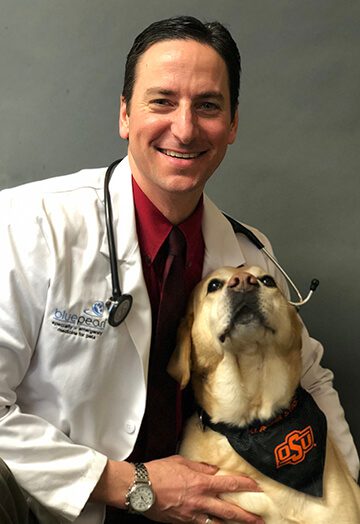Vet Enterprise: Offering Comprehensive Solutions for Your Pet's Health and Safety
Vet Enterprise: Offering Comprehensive Solutions for Your Pet's Health and Safety
Blog Article
Vaccination Standards From Your Relied On Vet
Inoculation guidelines provided by your trusted veterinarian play a crucial duty in securing your animal's health and well-being. Additionally, addressing common false impressions bordering vaccinations can additionally improve animal proprietors' self-confidence in these preventive procedures.

Relevance of Inoculations
Vaccinations play a critical duty in safeguarding animals against a variety of avoidable illness. By stimulating the body immune system to acknowledge and battle particular pathogens, vaccinations considerably minimize the occurrence of infectious conditions that can impact an animal's health and longevity. Not only do inoculations protect individual pets, however they additionally contribute to herd immunity, thus decreasing the total frequency of diseases in the family pet populace.
Timely inoculations aid to reduce the spread of diseases such as rabies, parvovirus, and distemper, which can have extreme repercussions for both pets and human beings. Inoculations are frequently a demand for boarding centers, grooming services, and pet dog parks, making them necessary for those who wish to mingle their animals.

Core Injections for Pets
While the certain inoculation demands of pet dogs can vary based upon specific elements, core injections are globally suggested to protect versus the most major and typical illness (Veterinarian Enterprise). Core vaccines are those considered important for all family pets, despite their way of living or geographical place, as they guard against highly transmittable and possibly fatal health problems
For pet dogs, the core vaccinations include those for canine distemper, parvovirus, adenovirus (hepatitis), and rabies. Adenovirus can result in liver disease, while rabies is a zoonotic condition that postures a danger to both human beings and pets.
In cats, core vaccines include feline panleukopenia, feline calicivirus, feline herpesvirus (rhinotracheitis), and rabies. Feline panleukopenia is an extremely infectious viral disease that affects the body immune system and intestines. Calicivirus and herpesvirus are major contributors to upper respiratory infections in felines, while rabies stays an important issue for public health.
Talk to your veterinarian to guarantee your pets obtain their core inoculations on timetable.
Non-Core Vaccines Explained
Non-core injections are tailored to address particular dangers related to a pet dog's direct exposure, environment, and way of living to certain conditions. Unlike core vaccines, which are generally recommended for all pets, non-core injections are thought about based upon private circumstances. These vaccinations are particularly crucial for animals that might run into special microorganisms as a result of their geographical place, travel practices, or tasks.
Instances of non-core injections include those for my explanation Bordetella bronchiseptica, which is connected to kennel coughing, and Lyme illness, triggered by ticks. Animals that regularly connect with other pets, such as those in boarding centers, dog parks, or grooming settings, may profit from Bordetella vaccination. If you live in a location where Lyme illness is common, vaccinating against this disease can be a prudent selection for outdoor-loving pet dogs.
Various other non-core vaccinations may consist of those for leptospirosis, canine flu, and feline leukemia, relying on the certain risk variables present. It is important to have a detailed conversation with your vet regarding your family pet's way of living and the possible requirement for these vaccinations, making sure a customized inoculation approach that best secures your hairy good friend.
Inoculation Set Up Review

As family pets mature, it is essential to stick to the recommended booster inoculations. Pet Vaccinations. For adult pets, core injections are usually provided every one to 3 years, depending on the specific vaccination and local laws. Non-core vaccines may be recommended based on lifestyle elements and regional illness prevalence, necessitating a customized strategy
Regular vet exams are important for updating vaccination schedules. Your veterinarian can give advice on the most appropriate booster shots for your pet, factoring in age, health and wellness standing, and ecological risks. By remaining proactive and informed, pet owners can ensure their fuzzy companions receive reliable and timely inoculations, thereby securing their wellness and health throughout their lives.
Typical Misconceptions About Injections
Misunderstandings regarding pet vaccinations can result in complication and unwillingness among pet owners concerning the booster shot process. One widespread misconception is that injections are unneeded for indoor pet dogs. While it's true site web that interior pets face lower threats, they are not completely immune to diseases, as pathogens can be introduced through different methods, including human clothing and other family pets.
An additional misconception is that vaccines can create the conditions they aim to avoid. In truth, the majority of vaccinations include inactivated or attenuated pathogens, which can not create disease in healthy animals. Some family pet owners likewise believe that their animals must not be vaccinated if they are already healthy; nonetheless, inoculations are an aggressive action that helps prevent the onset of health problem.
In addition, lots of pet proprietors fear that vaccinations will certainly lead to long-term health and wellness complications. The advantages of vaccination-- securing animals from potentially serious diseases-- much surpass the threats.
Conclusion
In recap, adherence to vaccination guidelines is vital for making sure the health and wellness and longevity of pets. Resolving usual myths surrounding vaccinations even more enhances the significance of notified decision-making in web family pet treatment.
Not only do inoculations shield private pets, however they also contribute to herd resistance, thereby decreasing the total prevalence of conditions in the family pet populace.
Mistaken beliefs regarding animal vaccinations can lead to complication and reluctance among animal proprietors relating to the immunization procedure. While it's true that interior animals encounter lower dangers, they are not entirely immune to illness, as pathogens can be presented through various ways, consisting of human garments and other pets.
Some animal proprietors also think that their pets must not be vaccinated if they are already healthy and balanced; nonetheless, inoculations are a positive step that helps protect against the onset of disease.
The benefits of inoculation-- securing animals from potentially lethal diseases-- much surpass the risks.
Report this page